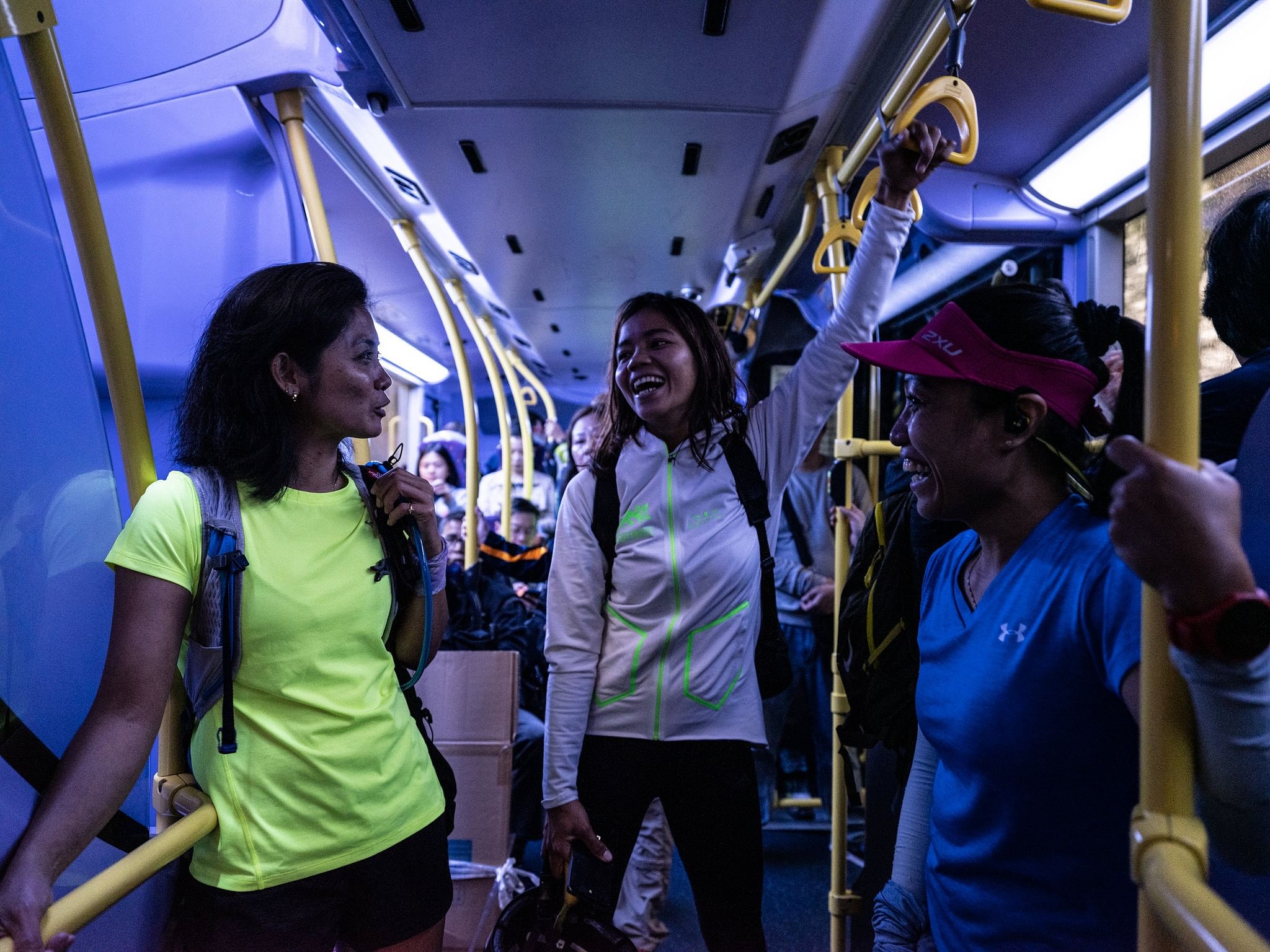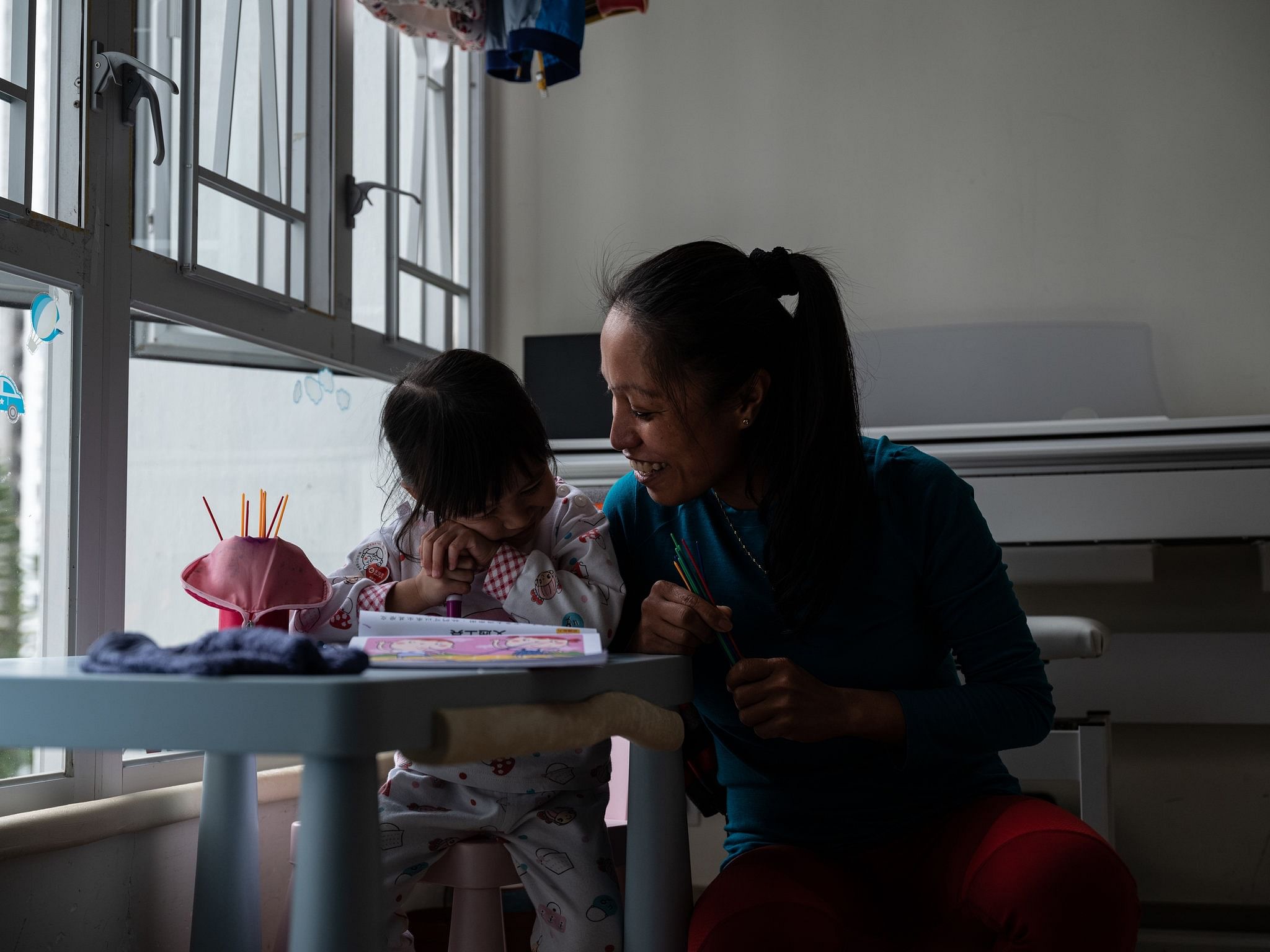HONG KONG (NYTIMES ) - Six days a week, Ms Jaybie Pagarigan cooks, cleans and shops for her employers, a family in Hong Kong.
Then on Sundays - her one day off - she hits the trails.
Traversing the city's lush and vast country parks, the 39-year-old domestic worker from the Philippines clocks in miles of running and thousands of feet in elevation as she conquers one peak after another.
Ms Pagarigan is part of a growing community of maids in Hong Kong who have taken up trail running for the challenge of the sport and the opportunity to be treated as equals in a society that often discriminates against them.
In addition to long work days, one-day weekends and an exhaustive list of responsibilities, these domestic workers somehow find the time and energy to compete in mountain ultramarathons. They squeeze in training runs before the crack of dawn or late at night, and find creative ways to turn their household duties into training opportunities.
On a recent spring Sunday, Ms Pagarigan stood under overcast skies at the starting line of the King of the Hills Hong Kong Island race, part of one of the city's oldest trail-running series. She was there to race the sprint distance, 11.5 miles (18.5km).
At 4 feet, 11 inches (1.5m), Ms Pagarigan was head and shoulders shorter than some of the men around her. But she had a look of steely resolve as she gazed into the distance, hopping on her toes to keep warm as the race director waited for a thunderstorm warning to be lifted so the race could start.

Ms Pagarigan was not familiar with the course and did not quite know what to expect. But she did know that there would be stairs, lots of stairs, and that her legs would burn more than her lungs would. She also knew that she had hours of training behind her, and that "it's better to not know what's in front of you", she said.
She ended up finishing the race in just under three hours, a result that disappointed her. The morning's rainstorms had made the trails slick with mud, and she had fallen twice.
Her friend, Ms Fredelyn Alberto, 30, a fellow Filipino domestic worker, came third in the full race of 21.5 miles (34.6km). Ms Alberto has established herself as one of the city's rising female trail runners after a string of podium finishes, including winning a 27.9 mile ultramarathon in January.
Ms Pagarigan ran her first ultramarathon in February, a gruelling race covering 50km, and she is training for several more.

When they are not on the trails, Ms Pagarigan and Ms Alberto are among Hong Kong's 380,000 foreign maids, who make up 5 per cent of the population but play an outsize role in the city's economy. Foreign maids first arrived in the city in the 1970s, when there was a shortage of local full-time housekeepers as the economy began to take off in line with China's opening up.
The steady flow of migrant workers has allowed large numbers of local women to stay in the workforce and has paved the way for Hong Kong's transformation into a thriving service economy. Last year alone, foreign maids added US$12.6 billion (S$17.3 billion) to the city's gross domestic product, according to a recent report by Enrich, a non-profit that works on the welfare of migrant workers in Hong Kong, and by Experian, a credit reporting bureau.
And yet, the workers often face discriminatory treatment.
The authorities have denied foreign maids the right to apply for permanent residency and have mandated they live in their employers' homes - an arrangement critics argue increases the risk of abuse. It is not uncommon for domestic workers to be made to sleep in bathrooms, storage rooms or closets.
Trail running has emerged as something of an unlikely equaliser for domestic workers. For at least a few hours, the sweat and camaraderie of the trails blur the lines between employers and maids, and among locals, migrants and expatriates.
"On weekdays, people say, Oh, you're a domestic helper," Ms Alberto said. "On weekends, on the trails, they say, Oh, you're a good runner. It's amazing," she added.
The sport is one of several ways that foreign domestic workers are reclaiming their voices and a sense of agency in a city where they are often expected to be subservient and virtually invisible.

For Ms Pagarigan, the King of the Hills race was just the start of her day. Afterward, she dashed to a graduation ceremony for a course on money management offered by Uplifters, a non-profit group that offers online education to migrant workers.
Later that afternoon, she led a hike as a volunteer for a local trekking group. In all, in her one day off from work, she covered 15 miles and 4,500 feet (25.5km).
Ms Pagarigan said that trail running sends an important message: "We're not just a maid. We're not just poor people."

Many domestic workers endure poor living conditions, and restrictive visa rules make them particularly vulnerable to exploitation by employers and job agencies. Some venues, like private clubs, bar domestic workers from certain areas or even entire premises.
"This is sad but this is reality - that when you say you're a domestic helper, you're a small thing," said Ms Dolly Vargas Salles, 40, a fellow trail runner and maid from the Philippines. "But for me, no. I can live as who I am," she said. "This is what trail running has done for me."



